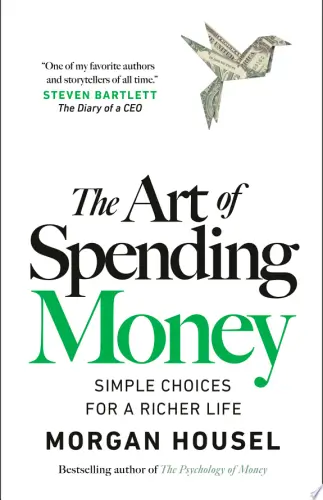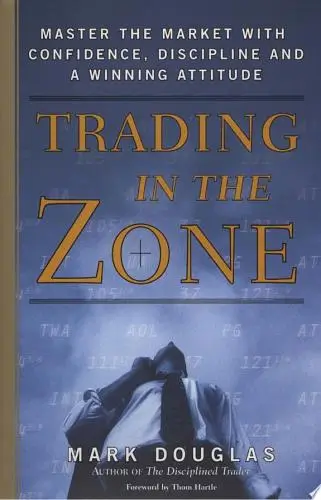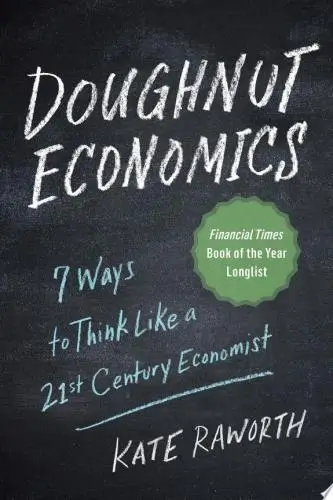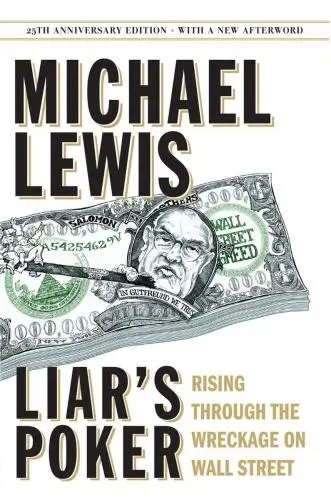Liar's Poker
Rising Through the Wreckage on Wall Street
What's it about?
Liar's Poker is a riveting journey into the high-stakes world of Wall Street in the 1980s, as seen through the eyes of author Michael Lewis. Starting as a naive trainee at Salomon Brothers, Lewis navigates the cutthroat floors of bond trading, exposing the bravado and recklessness that defined the financial scene. With wit and insight, the book reveals how greed and ambition fueled a trading culture that led to excess and, ultimately, to the market's downfall. A must-read for understanding the mechanics and madness of financial markets.
About the Author
Michael Lewis is an American author celebrated for his keen insights into finance, economics, and sports. Notable works include "The Big Short," "Moneyball," and "Flash Boys," where he masterfully blends investigative journalism with storytelling. His writing often exposes systemic flaws and champions underdogs, showcasing his distinctive narrative skill and deep understanding of complex topics.
10 Key Ideas of Liar's Poker
Mastering the Art of Bluffing in High-Stakes Negotiations
Bluffing, a critical tactic in poker, is equally vital in the financial world.
It involves projecting confidence and knowledge, even when uncertain, to sway negotiations in your favor.
This tactic requires understanding human psychology and the market's dynamics.
By convincingly bluffing about the value of securities or the state of the market, traders can secure better deals or sell assets at higher prices.
However, it demands a fine balance; overuse or transparent bluffing can lead to loss of credibility and future negotiation disadvantages.
Learn DeeperUnderstand Your Opponent: Before entering any negotiation, research the other party. Know their strengths, weaknesses, and what they value most in the deal. This knowledge will help you craft more convincing bluffs.
Practice Confidence: Even if you're unsure, present your arguments with confidence. Use a firm tone, maintain eye contact, and avoid filler words. Confidence can make your bluff more believable.
Learn to Read Others: Pay attention to verbal cues and body language. If you can read the other party's confidence or uncertainty, you can adjust your strategy accordingly.
Prepare Your Bluff in Advance: Think about the points where you might need to bluff and prepare your statements or data ahead of time. Being caught off-guard can weaken your position.
Know When to Fold: Recognize when a bluff isn't working and be ready to back down gracefully. Pushing a failing bluff can damage your credibility and relationships.
- Example
In a job negotiation, you might bluff about having another offer to increase your perceived value. You confidently state, 'I'm currently considering multiple offers' to prompt a better offer from the employer, even if the other 'offers' are not as solid as you imply.
- Example
During a sales pitch, you could bluff about the interest level of other clients in your product. Saying something like, 'We've seen a lot of interest from companies in your sector, and we're starting to run low on inventory,' can create a sense of urgency and exclusivity, pushing the client towards a quicker, possibly more lucrative, decision.
Building a Robust Network Within the Financial Industry
Networking is not just about expanding one's professional circle; it's about cultivating deep, strategic relationships that can provide insider information, support during crises, and opportunities for advancement.
In the volatile world of finance, having allies can mean the difference between success and failure.
This involves attending industry events, maintaining regular contact with mentors and peers, and offering help without immediate expectation of return.
A well-connected individual can access privileged information, advice, and opportunities not available to others.
Learn DeeperAttend Industry Events Regularly: Make it a point to be present at conferences, seminars, and networking events related to your field. These are golden opportunities to meet new people and strengthen existing relationships.
Stay in Touch: Don’t just collect business cards; follow up with the people you meet. A quick email or message on LinkedIn saying it was nice to meet them can go a long way. Aim to check in periodically with your contacts to share updates or interesting findings related to your industry.
Offer Value Without Expecting Immediate Returns: Whenever you interact with your network, think about how you can help them. Share relevant articles, introduce them to someone who could help with their projects, or offer your expertise on a subject. This builds goodwill and establishes you as a valuable member of your network.
Seek Out Mentors: Identify individuals whose careers you admire and reach out to them for advice and guidance. Most people are willing to share their experiences and wisdom if approached respectfully.
Be Active on Professional Social Media: Platforms like LinkedIn are not just for job hunting. They are powerful tools for sharing your professional achievements, joining industry-specific groups, and engaging with content posted by your peers.
- Example
If you work in finance, attending the annual Financial Analysts Seminar can introduce you to seasoned professionals and emerging talents. Engage in discussions, exchange business cards, and follow up with a brief note mentioning something specific you discussed.
- Example
Imagine you read an article that perfectly addresses a challenge one of your contacts mentioned they were facing. Sending them the link with a note saying, 'Thought of you when I read this, hope it helps!' is a simple yet effective way to add value to your network.
Understanding and Leveraging Market Psychology
Market movements are often driven by collective emotions rather than pure logic.
Recognizing patterns in market psychology—such as fear, greed, and herd behavior—allows traders to anticipate shifts and make profitable decisions.
This requires staying informed about global events, analyzing historical market data, and understanding the psychological factors that influence investor decisions.
By leveraging this knowledge, one can buy low during panic sells or sell high during euphoric buying sprees, capitalizing on the emotional swings of the market.
Learn DeeperStay Informed About Global Events: Make it a habit to read or watch the news daily. Focus on economic, political, and social events that could impact the markets. This will help you understand the context behind market movements.
Analyze Historical Market Data: Spend time each week reviewing historical trends and patterns in the markets you're interested in. Look for how certain events or periods of investor sentiment have led to market shifts in the past.
Learn to Recognize Emotional Triggers: Educate yourself on the psychological factors that influence investor behavior, such as fear and greed. Pay attention to news and market commentary to gauge the mood of the market.
Practice Emotional Discipline: Work on maintaining a level head during market extremes. Avoid making impulsive decisions based on fear or greed. Instead, rely on your research and analysis to guide your actions.
Develop a Strategy for Emotional Market Conditions: Create a plan for how to respond when you detect panic selling or euphoric buying in the market. This might include setting aside funds to invest during market lows or deciding in advance at what point you'll take profits during highs.
- Example
During the COVID-19 pandemic, global markets plunged due to widespread fear and uncertainty. Investors who recognized this as a panic sell-off and had analyzed historical data on market recoveries post-crisis could have seen this as an opportunity to buy quality stocks at lower prices.
- Example
In the late 1990s, the dot-com bubble saw stock prices of internet companies soar due to euphoric buying based on unrealistic expectations of future growth. Investors who recognized this herd behavior and irrational exuberance could have made the decision to sell their holdings before the bubble burst, securing profits before the downturn.
The Importance of Information Arbitrage
Information arbitrage involves exploiting the time gap between the availability of new information and its widespread dissemination to the market.
This tactic requires quick access to information, the ability to rapidly analyze its impact, and swift action to capitalize on the temporary advantage.
Success in information arbitrage hinges on developing a network of information sources, investing in technology that provides real-time data, and honing the skills to interpret how news will affect market sentiment and prices.
Learn DeeperStay Informed: Make it a habit to check financial news and updates from multiple sources daily. This could mean subscribing to financial newsletters, setting up news alerts for specific companies or sectors you're interested in, and using financial news apps.
Build a Network: Cultivate relationships with people in your industry or related fields. Attend conferences, join online forums, and participate in webinars. These connections can be invaluable sources of early information.
Invest in Technology: Use software or platforms that offer real-time market data and analytics tools. This could range from stock market tracking apps to more sophisticated financial analysis software.
Learn to Analyze Quickly: Develop your skills in financial analysis and market sentiment. This might involve taking courses in financial modeling, reading books on market analysis, or practicing by analyzing past market events and their outcomes.
Act Decisively: Once you have the information, analyze it quickly and make your investment decisions promptly. Time is of the essence in arbitrage opportunities, so having a clear strategy on how to act when opportunities arise is crucial.
- Example
If you hear about a merger between two companies before it's widely reported, you could buy stocks in the company being acquired before the price jumps.
- Example
Upon learning about a technological breakthrough in a company you follow, before it hits mainstream news, you could invest in their stock or related ETFs (Exchange-Traded Funds) anticipating a positive market reaction.
Adopting a Contrarian Investment Strategy
A contrarian approach involves going against prevailing market trends or sentiment, based on the belief that the crowd is often wrong at extremes.
This strategy requires deep market analysis, conviction in one's assessment, and the patience to wait out market corrections.
Contrarians might buy undervalued assets being sold off in a panic or sell overvalued assets in a buying frenzy.
While risky, this approach can yield significant returns if the market eventually corrects as anticipated.
Learn DeeperResearch and Understand the Market: Spend time each day reading financial news, market analyses, and reports from various sectors. This will help you develop a keen sense of market trends and sentiment.
Learn to Identify Overvalued and Undervalued Assets: Use financial metrics and ratios like P/E (Price to Earnings), P/B (Price to Book), and others to assess whether an asset is overvalued or undervalued compared to its historical averages.
Develop Patience and Conviction: Contrarian investing requires a strong belief in your analysis and the patience to wait for the market to recognize the true value of an asset. This might mean holding onto investments even when they're not immediately profitable.
Start Small and Diversify: When beginning with contrarian investing, start with smaller amounts to manage risk. Also, diversify your investments to spread out potential risks across different assets or sectors.
Keep Emotions in Check: Avoid making investment decisions based on fear or greed. Stick to your analysis and investment plan, even when market sentiment is strongly against you.
- Example
During the 2008 financial crisis, while most investors were selling off their stocks in a panic, contrarian investors were buying high-quality stocks at significantly reduced prices, betting that the market would eventually recover.
- Example
In a tech bubble, where tech stocks are being traded at extremely high valuations based on speculative future growth, a contrarian investor might sell these overvalued tech stocks or look for undervalued stocks in other sectors, anticipating a market correction.
Deeper knowledge. Personal growth. Unlocked.
Unlock this book's key ideas and 15M+ more. Learn with quick, impactful summaries.
Read Full SummarySign up and read for free!
Liar's Poker Summary: Common Questions
Experience Personalized Book Summaries, Today!
Discover a new way to gain knowledge, and save time.
Sign up for our 7-day trial now.
No Credit Card Needed

Similar Books

Forex Trading QuickStart Guide
Troy Noonan
The Art of Spending Money
Morgan Housel
Trading in the Zone
Mark Douglas
Doughnut Economics
Kate Raworth
A study guide for Barbara Ehrenreich's "Nickel and Dimed: On (Not) Getting By in America"
Gale, Cengage Learning
Bitcoin For Dummies
Prypto
Debt
David Graeber
The Barefoot Investor
Scott Pape
Money Has No Value
Samuel A. Chambers
Financial Peace
Dave RamseyTrending Summaries

Peak
Anders Ericsson
Never Split the Difference
Chris Voss
Smart Brevity
Jim VandeHei
The Psychology of Money
Morgan Housel
The First 90 Days
Michael D. Watkins
Atomic Habits
James Clear
Thinking, Fast and Slow
Daniel Kahneman
The Body Keeps the Score
Bessel van der Kolk M.D.
The Power of Regret
Daniel H. Pink
The Compound Effect
Darren HardyNew Books

Forex Trading QuickStart Guide
Troy Noonan
Comprehensive Casebook of Cognitive Therapy
Frank M. Dattilio
The White Night of St. Petersburg
Michel (Prince of Greece)
Demystifying Climate Models
Andrew Gettelman
The Hobbit
J.R.R. Tolkien
The Decision Book
Mikael Krogerus
The Decision Book: 50 Models for Strategic Thinking
Mikael Krogerus
Fichte
Johann Gottlieb Fichte
Do No Harm
Henry Marsh

